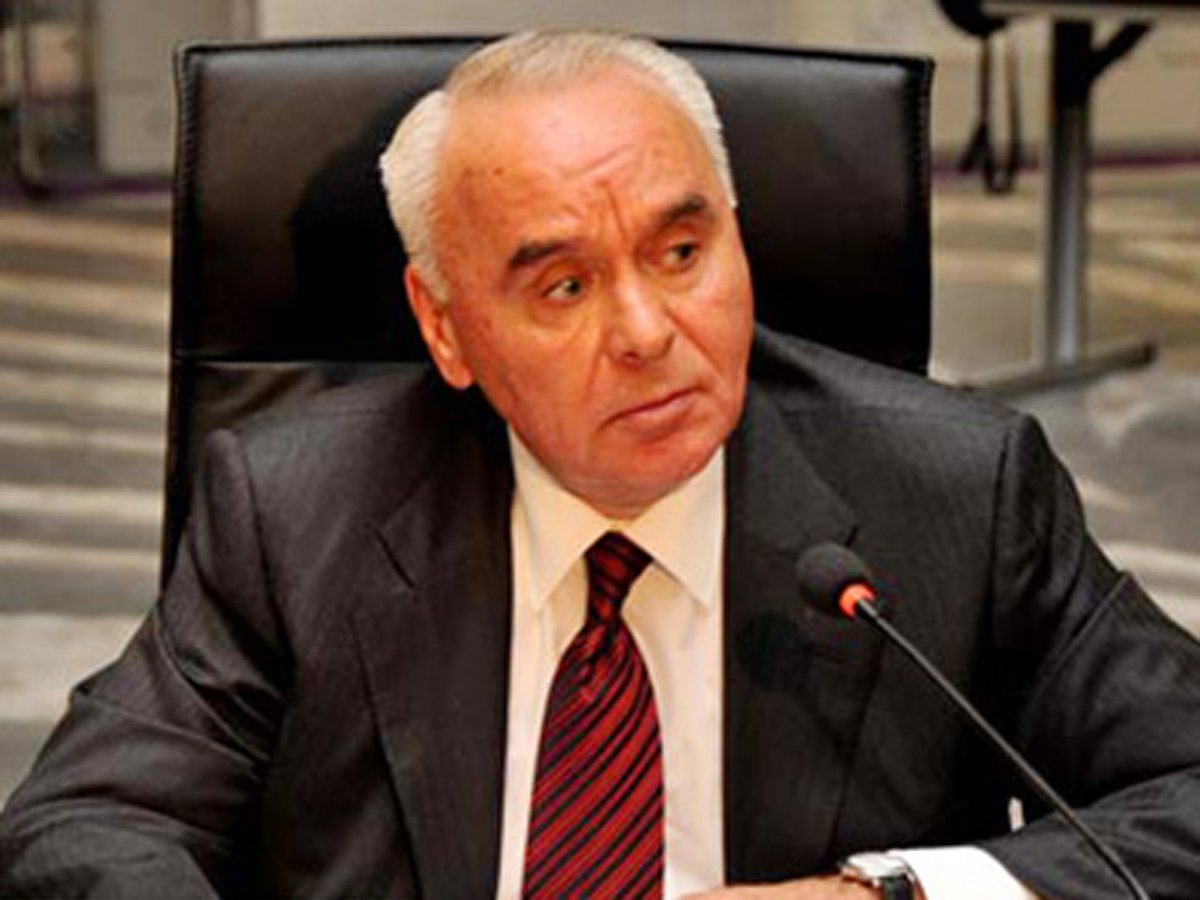Baku, Azerbaijan, May 18
Trend:
Armenia bears full responsibility for unleashing the war and using force against Azerbaijan, occupying its territories and carrying out ethnic cleansing on a massive scale, said Azerbaijan's Deputy Foreign Minister Mahmud Mammad-Guliyev.
He made the remarks addressing the 126th Session of the Committee of Ministers of the Council of Europe in Sofia, Bulgaria, May 18.
"Speaking about the security challenges that Europe faces today, I would like to draw your attention to the ongoing military aggression of Armenia against Azerbaijan," he said.
"The occupation of the Azerbaijani territories by Armenia was condemned by the Parliamentary Assembly of the Council of Europe in its resolution of 1416 (2005). The resolution emphasized that "the occupation of foreign territory by a member state constitutes a grave violation of that state's obligations as a member of the Council of Europe," he added.
"We regret that the United Nations Security Council resolutions adopted in 1993, calling for immediate, complete and unconditional withdrawal of the occupying forces from all occupied territories of Azerbaijan, still remain unfulfilled," said Mammad-Guliyev.
He noted that on April 2, 2016, the armed forces of Armenia targeting civilians densely residing in the territories adjacent to the frontline area opened intensive heavy weapons fire at the positions of the armed forces of Azerbaijan along the line of contact.
"As a result of Armenia's artillery attacks a number of civilians, including children were killed and seriously wounded. Residential buildings, houses, schools, kindergartens, and other civilian infrastructure were either destroyed or damaged," said the deputy FM.
"It should be emphasized that the territories controlled by the armed forces of Azerbaijan along the line of contact are densely populated, on the contrary, there are no civilians on the other side of the line of contact controlled by the Armenian armed forces," he added.
"Therefore, accusations of Armenia on killing of civilians are groundless and have the only aim of deceiving the international community and avoiding responsibility," said Mammad-Guliyev.
Out of the 83 killed Armenian military servicemen 65 are the citizens of the Republic of Armenia, he said, adding that this is another proof of Armenia's responsibility for using force against Azerbaijan's territorial integrity.
"Despite the ceasefire agreed between Armenia and Azerbaijan on April 5, 2016, Armenia continues to violate that agreement by shelling the Azerbaijani towns and villages," added the deputy FM.
He said the recent escalation triggered by Armenia's offensive actions represents a serious challenge to international and regional peace and security.
"We call upon the international community to condemn Armenia for blatant violation of international law and the ceasefire regime, demand strict compliance by it with the April 5, 2016 ceasefire commitments and engage constructively in the talks on the withdrawal of its armed forces from the occupied territories of Azerbaijan that would pave the way for the settlement of the remaining political issues," he said.
The conflict can only be resolved on the basis of sovereignty and territorial integrity of Azerbaijan within its internationally recognized borders, according to Mammad-Guliyev.
"I would also like to touch upon the Secretary General's annual report," he said. "The unfair finger-pointing approach targeting limited number of member countries is unacceptable."
Expressing concern about some problems, while ignoring others, undermines credibility of the CoE, according to the deputy FM.
"It is difficult to understand the reason behind expressing appreciation to the Secretary General for his annual report while simply taking note of his report on migrants and refugees at the same session," said Mammad-Guliyev.
"Selective approach should be avoided if we want to be consistent in our efforts," he said. "We expect the same level of concern from the Secretary General with regard to the grave consequences of Armenian aggression against Azerbaijan, including ongoing violation of the rights of Azerbaijani refugees and IDPs."
The deputy FM also noted that the topic of the ministerial meeting is a clear indication of the increasing significance the issue of democratic security has gained recently.
He noted that the recent terror acts perpetrated in Europe proved that terrorism constitutes a serious threat to peace and security.
"Having experienced the horrors of terrorism, Azerbaijan strongly condemns terrorism in all its forms and manifestations and supports efforts and initiatives to fight this evil," he said. "In this regard, Azerbaijan welcomes the increase in the number of accessions to the Council of Europe (CoE) Convention on the Prevention of Terrorism."
Meanwhile, combating terrorism and extremism should not target any particular religion or culture, and in this regard, the rise of intolerance and Islamophobia in the continent is worrying, according to Mammad-Guliyev.
As a member of the Organization of Islamic Cooperation and CoE, Azerbaijan acknowledges the importance of promotion of the intercultural dialogue, he said.
The deputy FM recalled that just recently Azerbaijan hosted the 7th Global Forum of UN Alliance of Civilizations, gathering more than 4,000 participants from 140 countries.
"The Forum adopted the Baku Declaration, which would serve as the guideline in promotion of intercultural dialogue and multiculturalism, as a way to counter violence and extremism, and sustain peace, security and prosperity for all," he added.






